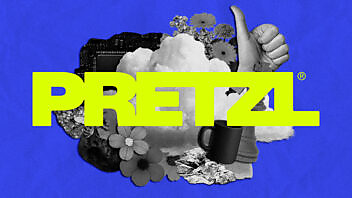According to the Harvard Business Review, 90% of tweets are generated by just 10% of Twitter users. Apparently this is a higher concentration than for Wikipedia and much, much higher than for other social networks, where the top 10% are responsible for 30% of the stuff produced.
I came across this fact in a blog at the fabulous O’Reilly Radar site debating whether Twitter was a conversational or broadcast medium. The author, Mark Drapeau, argues that Twitter operates more like a wiki, as a knowledge sharing, co-creation platform that produces content and facilitates consumption. Mark argues that the 10% of top tweeters are ‘subject-matter experts, passionates, mavens, and thought leaders who break news, write strong opinions, and tell jokes’. That’s why Twitter is a great research tool. You can find out what’s hot in a market by spending a couple of hours on Tweetdeck.
While what Twitter is may be a pretty interesting debate (and pretty vital to understand for B2B marketing types), Drapeau mentions something even more interesting, the concept of ‘lethal generosity’ . This was first talked about by Shel Israel in his Global Neighborhoods blog. He talks about a data storage community that was set up by Hitachi Data Systems as a wiki that became really active. Interestingly HDS, instead of branding the site as an HDS wiki, opened it up to the entire data strorage community including other vendors as well as customers, analysts, press and the like. HDS kept in the background. Out of this act of generosity came a fascinating, but unsurprising (for social media practitioners at least) development: the community recognised HDS’ contribution and the motives behind it and started calling it ‘the HDS wiki’ anyway and, de facto, HDS became recognised as the thought leader.
As Shel says:
“This is an example of “lethal generosity”. Every time a competitor joined into the wiki conversation, it re-enforced Hitachi’s leadership. If it did not join in, it was visibly boycotting a place customers found valuable. Lethal. In social media, the best way to beat your competition is to be more generous with anything that your customer values (my emphasis).”
This feels like an important principle of social media marketing that B2B marketers need to take to heart: recognise the customer is now in the box seat. Provide what he wants by putting his agenda at the heart of what you do online, while avoiding cramming your brand or widget in his face at every opportunity.
‘Lethal generosity’. Love it.

Enjoyed this article?
Take part in the discussion







Comments
John November 5th, 2009
I think the value of Twitter is in its real time nature, not its ability to build communities. Twitter is turning out like most social experiments – demonstrating the worst in humanity. Its “dominated” by celebrity names where its not what you say, but who you are that attracts followers. These “big hitters” have hundreds of thousands of followers, but only follow a handful. If usage defines a product, then its a broadcast medium with very little conversation going on. And human nature means we prefer to talk than listen. So not sure about lethal generosity, but there’s certainly a lot of lethal egos out there.
Then again, its early days. Maybe the idea of asynchronous connections is fundamentally flawed. Maybe Facebook is the better model – you co-opt-in to connect to a person or group of people you know or know of? After all who can truly have a conversation with 100,000 people? I’m sure social media will morph into specialist networks communicating realtime – more like the HDS wiki than Twitter.
And definitely, for B2B companies the culture shift is going to be part of the debate, not be the broadcast generator. Maybe now’s the time for Communications Managers to re-brand themselves as Conversation Contributors?
John
http://www.shipserv.com
Stan Woods November 6th, 2009
John
Agree that too many people use Twitter for broadcasting bollocks, but feels as if the kind of fluid, interactive, discovery-based networks that you get on Twitter are really helpful to test the temperature of a market. Also agree that it can be a bit like football phone ins, where people who never went to the match feel empowered to criticise the referee for being a ‘complete disgrace’. Learning quickly to identify the un-informed feels important.
Ananya November 17th, 2009
john, like face book you may also prefer stumble upon where you may get conectyed with the people whom you know as well as may interact with the person whome you like.